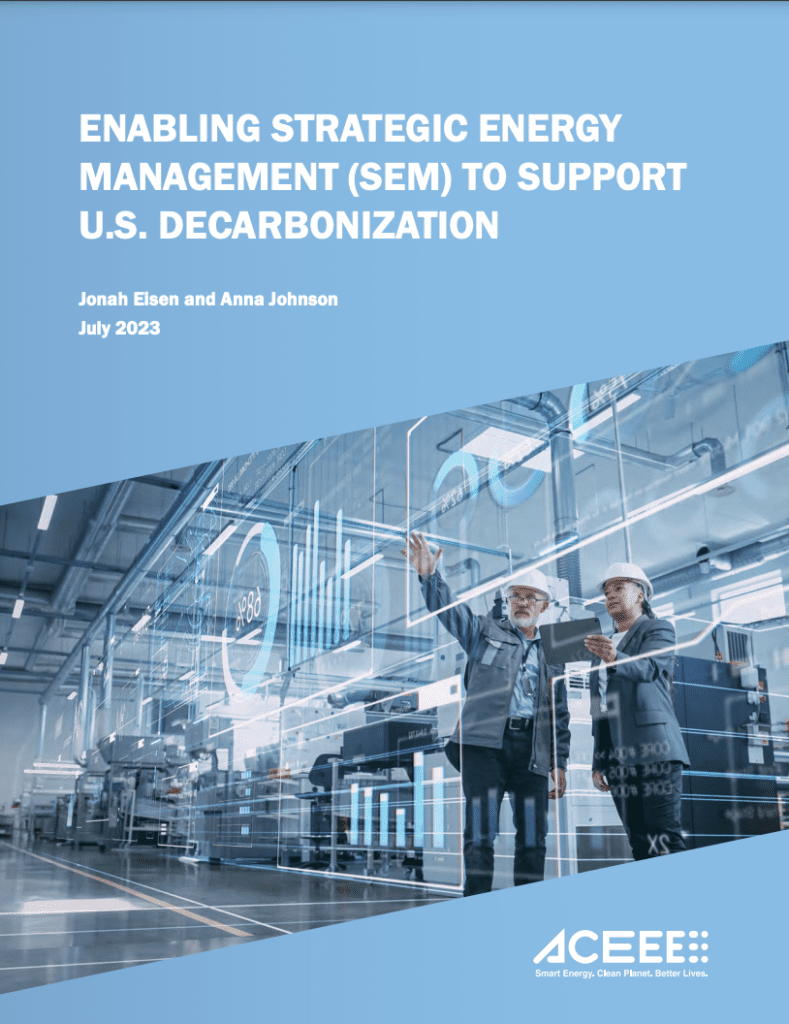Resource Library
ACEEE White Paper: Enabling Strategic Energy Management (SEM) to Support Decarbonization in the U.S.
Overview
This paper explores the policy, regulatory, economic, and program design challenges and opportunities that may arise when broadening SEM programs.

Strategic energy management (SEM) has been an important driver of energy and cost savings for industrial and commercial customers over the past two decades. But SEM programs were originally designed to prioritize “avoided energy consumption,” not to track carbon savings or address a dynamic and variable power grid. To help meet ambitious U.S. decarbonization targets, SEM programs and the regulatory environment that oversees them would benefit from realigning with these additional considerations. SEM programs can expand their scope and help customers adopt emission reduction solutions such as fuel switching, electrification, demand-side management (DSM), on-site renewables, optimal use of batteries, and reductions in supply chain emissions. To achieve these goals, SEM programs need to track and optimize carbon emissions and time-variable energy costs, in addition to absolute energy use.
This paper explores the policy, regulatory, economic, and program design challenges and opportunities that may arise when broadening SEM programs. We propose the following recommendations for the SEM practitioner community, policymakers, and federal and state governments:
- Develop policies, standards, and protocols that enable SEM programs to incorporate carbon reductions.
- Connect federal money for carbon reduction with existing utility-funded SEM programs.
- Create the proper infrastructure to support better tracking, transparency, and sharing of time-variable carbon intensity metrics.
Related Resources
ACEEE: Survey: Marketing and Promoting Electrification Using Behavioral Science
ACEEE surveyed a nationally representative sample of American adults to understand household behaviors and preferences related to home energy use. Results show how to use behavioral science to more effectively market and promote residential electrification.
DOE: National Definition of a Zero Emissions Building
The DOE has developed a National Definition of a Zero Emissions Building—a building that is highly energy efficient, does not emit greenhouse gases directly from energy use, and is powered solely by clean energy.
Efficiency First CA: Calculators
EFCA has new calculators! The Air Leakage Calculator, Duct Leakage Calculator, and SLA Calculator will support your efforts to achieve superior energy efficiency.
